MercoPress. South Atlantic News Agency
Tag: SAERI
-
Monday, June 10th 2024 - 07:12 UTC
We need to “Awaken new Depths”: UN invitation on World Oceans Day celebrations
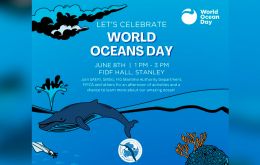
On Saturday the South Atlantic Environment Research Institute, SAERI, invited the Falkland Islands community to celebrate Oceans Day, and create awareness of how much the South Atlantic islands depend on them. According to Resolution 63/111 of December 2008, the UN General Assembly designated 8 June as World Oceans Day. And “Awaken New Depths” is the theme for World Oceans 2024.
-
Saturday, December 30th 2023 - 06:33 UTC
Minister Rutley's second visit to the Falklands in a month: big changes in South Atlantic fisheries policies?
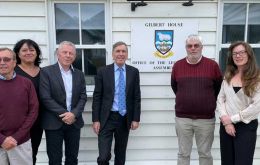
Foreign Office minister for the Americas, Caribbean, and Overseas Territories David Rutley has been to the Falkland Islands again this week, the second visit in a month, and in the meantime this did not prevent him from on December 10, to represent the British government in Buenos Aires for the taking office ceremony of Argentine extreme liberal president, Javier Milei.
-
Saturday, July 22nd 2023 - 10:07 UTC
Falklands: SAERI invitation to join World BOG DAY and explore peatlands

SAERI Falklands is inviting families to participate on Sunday 24 July at two free family fun events to celebrate World BOG DAY. SAERI says it will help to learn the difference between a swamp, marsh and bog, and how the peatland science is conducted, for which it invites families and friends to attend.
-
Thursday, December 29th 2022 - 10:14 UTC
SAERI: Climate change resilience in the Falklands Fisheries and Marine Ecosystems
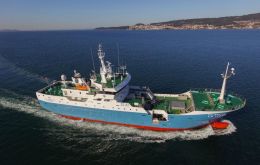
The Falkland Islands (FI) historically lacked herbivorous mammals. The introduction of grazing animals has led to vegetation changes and soil erosion. The impact of these changes on wetland and aquatic habitats is not well-understood; limited past research suggests that water quality may remain fairly natural and is largely influenced by sea salt deposition and humic acids from peat runoff. Some studies, however, have shown evidence of human impacts, such as elevated nutrient concentrations in some ponds.
-
Wednesday, July 13th 2022 - 09:39 UTC
Falklands' SAERI project on Vulnerable Marine Ecosystems of the Southwest Atlantic
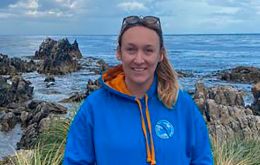
Research from the Vulnerable Marine Ecosystems (VME) project has been showcased at the GeoHab Conference held at The Venice International University in Italy during the month of May 2022.
-
Thursday, August 26th 2021 - 08:50 UTC
Project with Falklands' SAERI to safeguard South Georgia’s Blue Belt
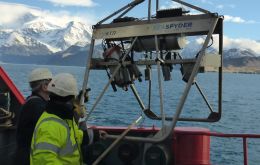
Following a horizon scanning exercise that identified marine invasive species as a key threat, the Government of South Georgia & the South Sandwich Islands (GSGSSI) is embarking on a marine bio-security project with the Falkland Islands based South Atlantic Environmental Research Institute (SAERI).
-
Friday, March 22nd 2019 - 09:00 UTC
The Falkland Islands states its position: Preparing for Brexit
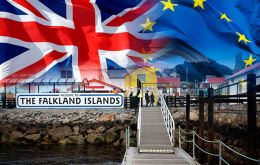
On 23 June 2016, the people of the UK and Gibraltar voted by a majority to leave the European Union (EU). In this article the Falkland Islands Government (FIG) sets out what work has taken place since the referendum to prepare the Falkland Islands for Brexit.
-
Monday, March 11th 2019 - 18:30 UTC
Falklands: First surveys of the Burdwood Bank completed for Marine Managed Areas Project
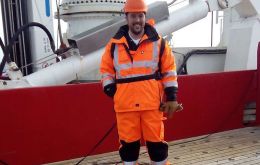
By Ander M. de Lecea - Research scientist Drs Ander de Lecea and Marina Costa of SAERI recently completed their first surveys of the Burdwood Bank, kicking off the “Fine Scaling of the Marine Management Areas of the Falkland Islands” (MMA) project.
-
Monday, March 11th 2013 - 08:04 UTC
Falklands and South Atlantic environment and geography information management system

The South Atlantic Environmental Research Institute (SAERI) announced a new program: the South Atlantic Information Management System and GIS Centre, which officially brings together the UK South Atlantic Overseas Territories in SAERI’s South Atlantic scope that ranges from the equator down to the ice. The Centre is funded by the FCO via the UK’s Joint Nature Conservation Committee.
